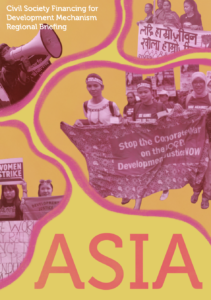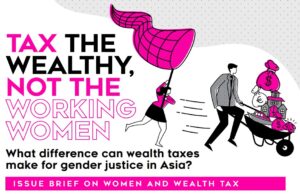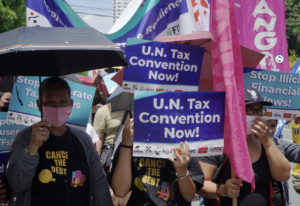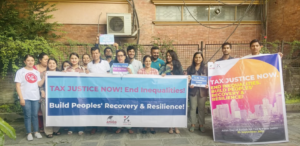While inequality between countries has actually declined over the last two decades, it still remains alarmingly high. According to the World Inequality Report, the average income of the world’s richest 10 per cent of countries remains 38 times higher than the average income of the world’s poorest 50 per cent of countries – a gap that is as wide as it was in the early 20th century. Today, South and Southeast Asians have an average income that is half that of the world average (and they work more hours for this income too). Meanwhile Europeans and North Americans earn 215 per cent and 315 per cent of the world’s average income respectively.
Global inequalities
Read more
Reducing inequalities is a common goal for the international community. This was underlined by world leaders in 2015, when they adopted the Agenda 2030, which includes the 17 Sustainable Development Goals (SDGs). Goal 10 specifically focuses on inequality and commits world leaders to “Reduce inequalities within and among countries”. The SDGs also include commitments to combat more specific types of inequalities. Importantly, through Goal 5, world leaders stated their aim to “Achieve gender equality and empower all women and girls”.
Despite these commitments, many gaps remain, and recent disruptions – from the Covid-19 pandemic to the war in Ukraine – have only made matters much worse. In his 2022 Assessment of Progress towards the SDGs, the Secretary-General of the United Nations highlighted that: “The COVID-19 crisis has exacerbated global income inequality, partly reversing the decline of the previous two decades. Weak recoveries in emerging markets and developing economies are expected to raise between-country inequality.”


A key driver – Tax dodging and illicit financial flows
Inequalities around the globe are made worse by an economic system that allows for some major losses of public resources. The Tax Justice Network estimates that US$ 483 billion is lost to tax avoidance and evasion by multinational corporations and wealthy individuals globally every year, and other illicit financial flows add to this sum. These vast losses of potential public revenue have a disproportionately negative impact on lower income countries, where these sources make up a larger share of budgets.
Outdated, opaque and biased rules make these losses possible. Deep inequalities in global decision-making on tax matters – including the fact that developing countries have not been able to participate on an equal footing in international decision-making in the past – have resulted in global tax standards that are particularly ill-suited for the world’s poorest countries and deny them the resources they need to address inequalities effectively.
Read more
As part of the Sustainable Development Goals, governments around the world have recognised the importance of mobilising the resources needed to fund their goals. To this end, they have committed to significantly reducing illicit financial flows by 2030. The commitments adopted in the Addis Ababa Action Agenda of the United Nation’s Third International Conference on Financing for Development in 2015 expand on this, committing countries to combat tax evasion and corruption and reduce opportunities for tax avoidance. Both processes have committed to increased international cooperation on these matters.
However, in practice the international governance on global tax rules and standards has been dominated by bodies where most lower income countries do not have an equal say, including the Group of 20 (G20) and the Organisation for Economic Co-operation and Development (OECD), also known as the “rich countries’ club”. While the OECD-led process does allow some possibilities for developing countries to participate, in practice, over one third of the world’s countries have not been a part of the process. Those countries that are included have been subject to unfavourable conditions in order to participate. The situation started to change in 2022, when a historic decision on international tax cooperation was adopted by consensus at the UN General Assembly. This breakthrough came in the form of a resolution that had been tabled by the Africa Group and includes the establishment of an intergovernmental UN body on tax.
The change we need
There are clear alternatives to the existing system. With the right design, global and national tax systems have an essential role to play in combating inequalities, both within and between countries, as well as in mobilising financing for development.
End inequalities in global tax rules and decision-making: empower the new intergovernmental UN tax process and create a UN Framework Convention on Tax
For over a decade, the Group of 77 – representing over 130 developing countries – has called for an intergovernmental tax body to be established under the auspices of the UN. This finally became a reality in November 2022, when the Africa Group at the UN tabled a resolution on an intergovernmental UN tax body that was adopted by consensus. The next step will be a decision on how this body should work. It is now vital to ensure that it becomes properly resourced, and that it allows all countries to participate on an equal footing. Furthermore, the work of the UN tax body must be transparent and allow full participation of observers, including civil society. Lastly, as a key priority, the body should give thorough consideration to the option of developing a new UN Convention on Tax. Civil society organisations have put forward a proposal for what this convention might look like. The convention is needed to provide the framework for a fairer international tax system that reflects the interests of all countries, addresses tax havens and tax-related illicit financial flows, paves the way for countries in the global south to strengthen their domestic resource mobilisation, and promotes progressive tax systems that address inequalities.
Tax the rich, not the poor
A wealth tax is a potent tool for directly stemming inequality. These taxes can help to curb the continued amassing of wealth, profits and power in the hands of an elite minority at the expense of the majority. They also help governments to raise more domestic revenues to fund public services, to make health and education more accessible and available for all, and to ease the tax burdens on those who can least afford to pay.
Make taxes work for women
Regressive tax systems can exacerbate gender inequalities and reinforce economic and social exclusion. For example, women tend to spend a greater share of their income on household necessities, which are subject to regressive consumption taxes. If such biases are addressed, taxation can become an instrument for advancing gender justice. Effective tax systems are also vital for mobilising resources to combat gender inequalities. In particular, women’s disproportionate share of unpaid care work is a key concern that should be recognised and supported through strengthened public services.
Make taxes work for people and planet
A better tax system should help to transform economic structures into systems that put people and the planet first through progressive green taxation. The international tax system should help to reduce inequalities and, at the same time, restructure the relationship between production and the environment and promote a systemic shift away from the exploitation and destruction of natural resources in ways that harm both the natural environment and the communities that rely on these resources. In the face of the global climate crisis, improved tax systems should also contribute to financing urgent climate action and meeting climate finance commitments.
Make multinational corporations pay their fair share
For many years, multinational corporations have taken advantage of unfair global tax rules and tax havens that rob developing countries of their resources and the fruits of their citizens’ labour. If these companies contributed fairly towards the public coffers in the places where they carry out their economic activities, host governments would not have to look elsewhere for revenue and could reduce regressive taxes that deepen inequality.
Reclaim public services – using public funds to fulfil people’s rights and needs
Underfunded public services can have devastating impacts on the poorest and most marginalised people around the world – hampering their efforts to improve their economic situation. Profit-driven private service provision is leaving many people behind. Governments must reclaim public control of essential social services, generate more public revenues and increase the allocation of funds for public services.

Taking action
Civil society organisations (CSOs) in the tax justice movement have a strong vision for turning inequalities around through a fairer global tax system. This vision is worked out through:
Advocacy
We intervene in international fora such as UN meetings, meet one-on-one to talk tax with decision-makers, share our research and aim to persuade those with the power to make changes to the system.
Awareness-raising
Who wants to hear about global tax rules? The realities of this unjust system are hidden behind layers of complexity, dull accounting and poor transparency. We help the general public to understand the glaring consequences of this opaque system. Focusing attention on the issues through conventional and social media helps to turn the tide in public opinion and put pressure on decision-makers.
Research & analysis
We analyse the impact of tax policies, collect information about the harmful practices of tax havens and develop solid proposals for alternatives.
Coordination
We bring together CSOs from around the world to share information, carry out joint actions and raise our voices together. We also build connections with other sectors, showing how tax justice can be transformative for achieving goals for poverty alleviation, gender justice, climate action and more.
The movement
Within this project, three partners are working on tackling inequalities through tax justice at the global and regional level:
Society for International Development (SID)
SID promotes a more just international tax system through its work as coordinator of the Civil Society Financing for Development (FfD) Mechanism. Bringing the voices of CSOs to the UN process on Financing for Development, the group calls for a shift of global governance on tax to the UN.
European Network on Debt and Development (Eurodad)
Working together with members and other allies, Eurodad advocates for greater transparency and enhanced coordination of taxation systems worldwide. Eurodad also challenges international institutions and governments carrying out tax practices that are harmful to developing countries.
The partners in this project work within broader networks that bring together a wide range of CSO voices in the fight for tax justice – as a means to end inequality:







